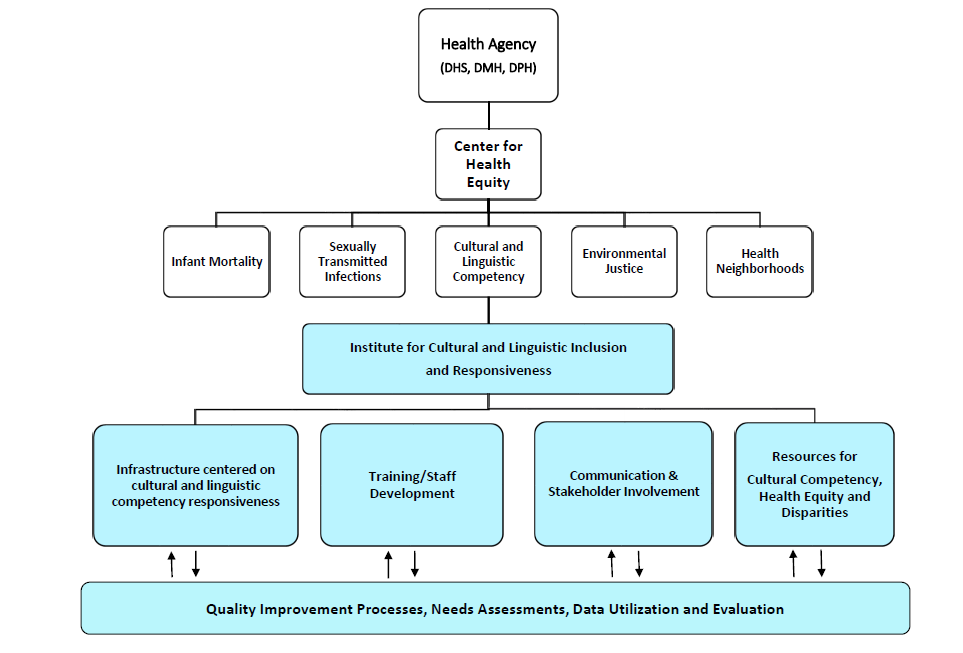Cultural and Linguistic Inclusion


LA County is one of the most diverse regions in the U.S. with a mix of communities that bring richness and complexity to our social and culinary culture.
Given our largely diverse population, there is a clear need to tailor services to ensure cultural and linguistic inclusion and sensitivity. This includes offering services in the appropriate languages and at literacy levels clients can understand, as well as demonstrating cultural awareness and humility when providing services.
The Institute for Cultural and Linguistic Inclusion and Responsiveness is one of the Center for Health Equity’s focus areas. Our mission is to create appropriate pathways that address gaps in service delivery and advance the Health Agency’s ability to meet the needs of diverse communities and patient populations. These communities are inclusive of individuals from different cultural backgrounds associated with:
The Department of Mental Health leads the Institute in partnership with the Departments of Public Health and Health Services. The Institute includes key representatives from all three health departments who are joined by community members and other stakeholders to increase our understanding and ability to address health inequities. Working together, we plan to:

The Institute is currently focused on the following activities:

Underserved Cultural Communities (UsCC) refer to communities historically unserved, underserved and inappropriately served in terms of mental health services. Department of Mental Health developed UsCC subcommittees to address the needs of targeted ethnic and cultural communities. Currently, there are seven subcommittees that meet monthly to discuss relevant issues and projects. They include:
All subcommittee meetings are open to mental health providers, consumers/clients, family members, community organizations and community members.
For more information, click here.
